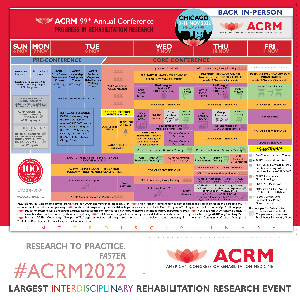Kate Radford
Professor of Rehabilitation Research
University of Nottingham, United States
Kate qualified as an Occupational Therapist in 1990. Her PhD involved developing and validating tests to predict fitness-to-drive for people with long term neurological conditions. Clinical work in community neuro-rehabilitation prompted interest in vocational rehabilitation.
Kate's current research involves trials to determine the effectiveness and cost effectiveness of job retention interventions for stroke survivors, trauma survivors and people with inflammatory arthritis, studies to develop and evaluate VR interventions for MS, peer coaching and assistive technology (Brain in Hand) interventions to promote self-management and participation following brain injury.
Kate leads the NIHR/Health Education England Pre-Doctoral Bridging Programme, supporting non-medical health care professionals to develop PhD proposals and leads the Doctoral Training Centre in Rehabilitation and Healthcare Research. Kate is a former President of the Society for Rehabilitation Research and currently Head of the Centre for Rehabilitation and Ageing Research in the School of Medicine. She is Chief Investigator for the REturn To work After StroKE (RETAKE) [HTA 15/130/1] and Co-Chief Investigator with Prof Denise Kendrick for ROWTATE, an NIHR funded programme to develop and test an intervention to support return to work and wellbeing following major trauma [NIHR PGfAR RP-PG-0617-20001].
Kate's research interest is in supporting people who sustain injuries or develop long-term health conditions, such as stroke or traumatic brain injury to return to work or regain meaningful life roles. Her PhD involved developing and validating tests to predict fitness-to-drive for people with neurological impairment.
Kate's methodological expertise is in developing and evaluating complex rehabilitation interventions using mixed-methods research. Her current research involves multi-centre trials to determine the clinical and cost-effectiveness of job retention interventions for stroke survivors, trauma survivors and people with inflammatory arthritis and studies to evaluate assistive technologies for promoting self-management and participation following acquired brain injury.
As rehabilitation interventions are complex and intervention success subject to contextual confounders, embedded mixed-methods process evaluations and qualitative research are used to explore factors affecting trial outcomes, implementation fidelity and barriers and enablers to clinical implementation.
I do not have any relevant financial / non-financial relationships with any proprietary interests.
Presentation(s):
-
Vocational rehabilitation to enhance return to work after trauma: findings from a non-randomised feasibility study
Thursday, November 10, 2022
4:14 PM – 4:30 PM

.jpg)
